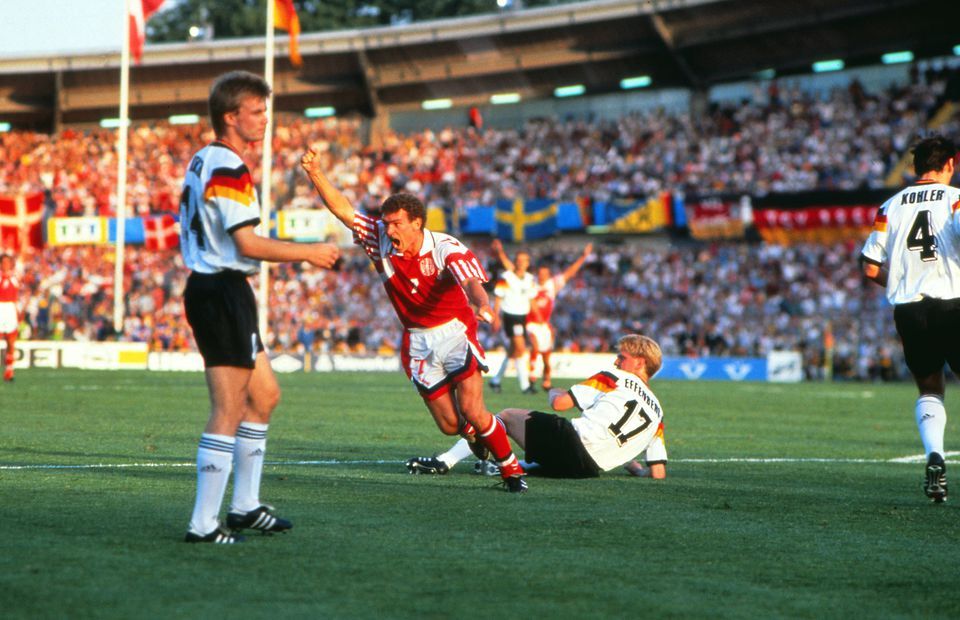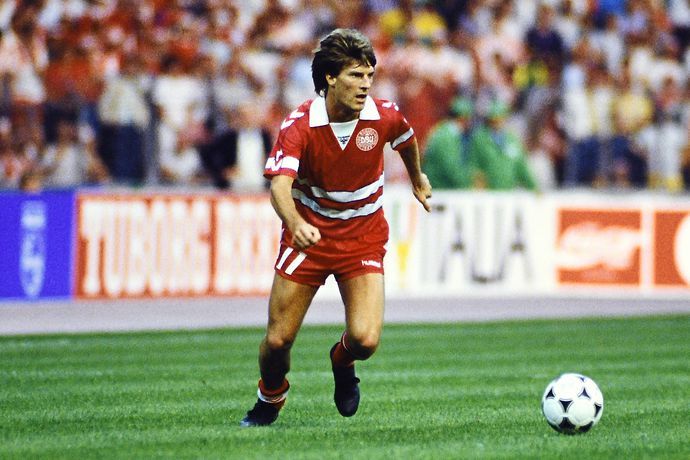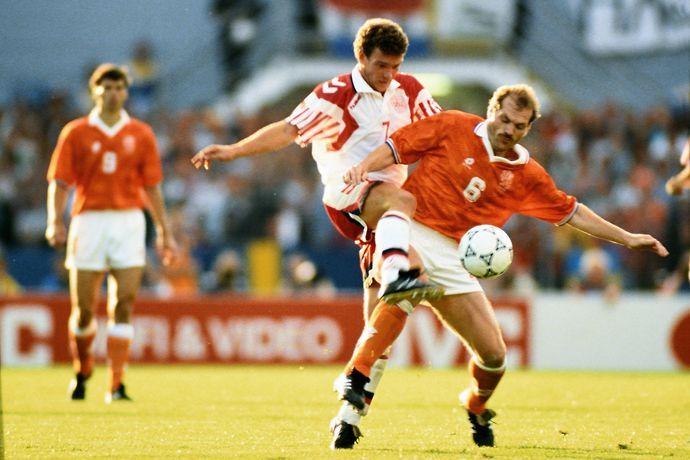The unlikeliest of heroes, for international football’s most improbable champions of Europe, nobody embodied Denmark’s 1992 European Championship success quite like John Jensen did.
While Greece might like to think they should own the sobriquet of the European Championship’s most implausible winners, they at least qualified for 2004 under their own steam. For Denmark, in 1992, they were the lucky loser, turned ultimate victor.
Football mythology often states that Richard Møller Nielsen’s squad dragged themselves off the beach to win Euro 92, when called into the tournament as Yugoslavia’s replacement, just ten days before the first ball in anger was set to be kicked.
Within a less romantic reality, Denmark had been put on standby long before then. As war raged in the Balkans and the United Nations implemented a series of crippling sanctions on a national collective of political convenience, UEFA prevaricated on whether its flagship international tournament should become embroiled in the subject matter or not.
Red Star Belgrade’s defence of the European Cup they had won in 1991 had played itself out entirely away from home, while the Yugoslav national team’s home fixtures in the qualifiers for Euro ‘92 had all been wisely completed before Red Star had overcome Olympique de Marseille, in Bari.
Having seen themselves to qualification, narrowly edging Denmark out by one point, Yugoslavia had subsequently taken to a football pitch only once since November 1991. This being a 2-0 defeat to the Netherlands, in Amsterdam, in March.
Denmark, meanwhile, had kept themselves occupied and match-sharp, with April friendlies in Ankara, against Turkey, and in Aarhus, against Norway. They had also agreed to face the C.I.S., in what was originally designed to be a pre-tournament warm-up fixture, on June 3, for the entity that had previously gone by the name of the Soviet Union.
By June 3, Denmark had officially replaced Yugoslavia in the list of competitors for Euro ‘92. Despite this, their send off for the tournament had taken place in front of a poorly attended 1-1 draw in Brøndbyvester.
It would be remiss to suggest that Euros fever had gripped the Danish populace at this point. The downbeat response to this unorthodox entry into a major international tournament was prompted further still by the absence from Nielsen’s squad of their star performer, Michael Laudrup.
The older of the Laudrup brothers had shown no interest in taking part, which was understandable, given his exhaustive club season was only ending four days prior to Denmark’s opening game against England. He had also not seen eye-to-eye with Nielsen, due to the more pragmatic direction he was taking the team, when compared to the expansive nature of Sepp Piontek’s Danish dynamite years.
This more pragmatic approach was perhaps no better illustrated than by Jensen.
Hardworking, determined, a player who happily accepted the more prosaic duties, he went to Sweden without an international goal to his name, playing his club football with Brøndby, having returned to the club after a couple of polarising seasons in the Bundesliga with Hamburger SV.
Jensen had been an integral part of the HSV side that had spent the 1988/89 season on the periphery of the Bundesliga title race, eventually obtaining UEFA Cup qualification. In comparison, fitness and the whims of his coach meant he had missed half of the following campaign, in which the club flirted with a wide-open relegation battle.
Largely seen as a player that was symbolic of Nielsen’s Denmark, it had in fact been Piontek that had introduced Jensen to the international stage, as part of his attempts to piece together a refreshed Denmark, after the shocking manner of their exit from the 1986 World Cup.
Included in Piontek’s squad for the 1988 European Championship, Jensen had only played in the last group game, a 2-0 defeat to Italy, when his nation had already been eliminated. He was to become a staple of the Denmark team from that day on.
Usurped by Romania in the last qualifier for a place at the 1990 World Cup finals, Piontek soon made his exit, to be succeeded by his assistant. Nielsen had been with the DBU since 1978, predating Piontek’s involvement. Across that span of time, as well as rising to become assistant, he had also led the under-21s for over a decade and taken charge of a near-miss on reaching the 1988 Olympics.
Jensen had been part of both Nielsen’s under-21 and Olympic teams, and he became the pivot upon which the senior team would revolve.
Taking on the type of role that would have had Eric Cantona branding him as a water-carrier, Jensen’s unfussy and unselfish work both on and off the ball allowed his more aesthetically pleasing teammates greater freedom. He almost operated within an overexaggerated state of rigidity, to gift the likes of Brian Laudrup and Kim Vilfort space to create.
Playing all but 27 minutes of Euro ‘92 — 27 minutes that saw Denmark unsuccessfully chase a 1-0 deficit during the group stages against the hosts — if the importance of Jensen’s presence hadn’t been appreciated before, it was now.
With Jensen on the pitch for every second of the remainder of the tournament, Denmark lurched from defying logic against Michel Platini’s France, to rewriting gravity against Rinus Michels’ Netherlands, bludgeoning a path into the final against Berti Vogts’ Germany.
Despite being heavy underdogs, Denmark had cultivated a stunning momentum going into the final, even shrugging off the horrendous injury that had deprived them of the services of Henrik Andersen.
All the pressure was on the world champions, and in the 18th minute it was Jensen who sweetly caught Bodo Illgner by surprise to open the scoring. It was difficult to read just who his goal shocked the most: Germany, his teammates, the spectators, the watching global audience, or perhaps himself.
Soon after becoming an Arsenal player, it is debatable what type of player their supporters were expecting when he arrived at Highbury, but in Gothenburg in 1992, Jensen wrote his name into European Championship lore.





















